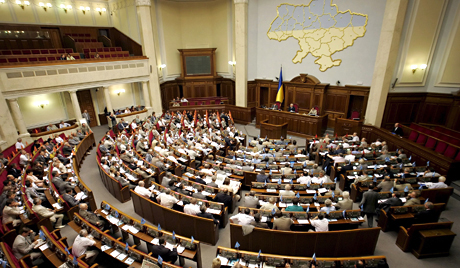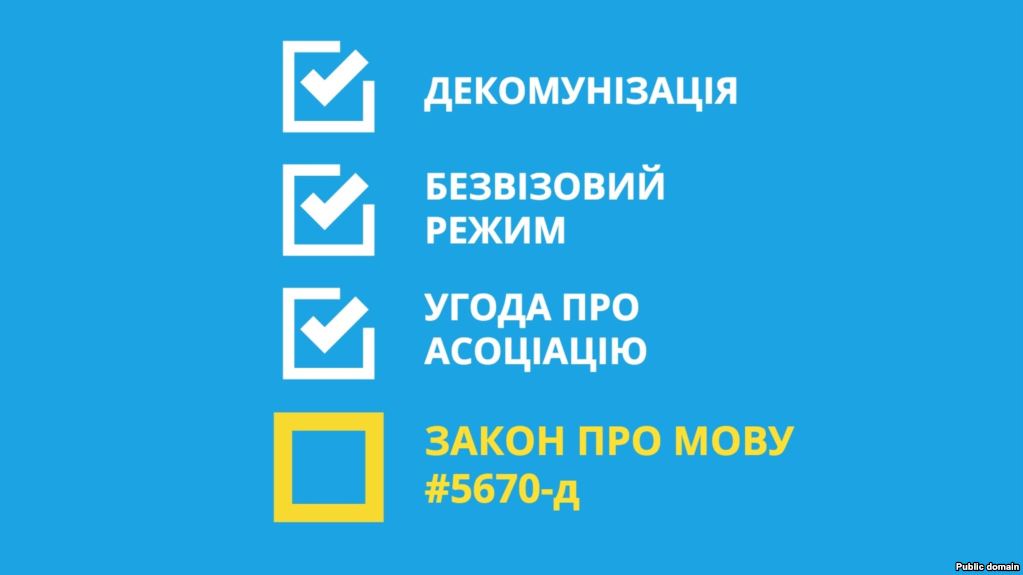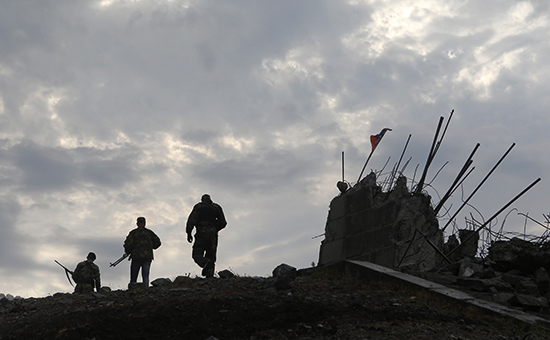In 2014 it seemed that the old system had suffered a mortal blow. Only now do we see that the wound was only skin deep…
The old system is at the breaking point. We’re on the most difficult and dangerous section of the course and we must not deviate from the path we’ve chosen.
We live in a time of troubles and conflicts. People say: “We’ve seen worse, but not as vile and despicable as today!”
We know who our external enemies are and every day we see our government behaving like an internal enemy. Yesterday’s idols are falling one by one. We have lost our references, and the ground on which we stood so firmly yesterday has been transformed into a quagmire.
The crisis unfolding in Europe and throughout the world has been imposed on Ukraine. We see Putin’s Russia peeping out from behind every global crisis - a spoiler state, a state that destroys and complicates everything.
These hard times could end if at least one crisis would disappear. It’s worth noting that it’s not only Ukraine and the West that are going through a crisis, but Russia is also suffering deep economic setback. The question is who will fall faster. The best scenario for Kyiv would be the collapse of Putin’s regime, which would mean the final victory of Ukraine. But, this victory presents a real threat: the world may switch its attention to Moscow and Ukraine would once again fall into the shadows.
Therefore, we must now roll up our sleeves and clean up house! What exactly should we do?
Let’s not talk about corruption just now. Corruption is not a disease but a symptom, like a high fever or a severe rash. The disease is what we call the limited access system, according to which power is equal to ownership… so that whoever seizes the former has the right to profit from the latter. In such circumstances, corruption acts as a lubricant; the system cannot and will not function without it.
In 2014 it seemed that the old system had suffered a mortal blow. Only now do we see that the wound was only skin deep…It’s healed and shines like a new penny.
Revolutions give birth to high expectations. Polish philosopher Leszek Kolakowski called this phenomenon the “beautiful madness of revolution”. In our post-revolutionary period of recovery, we must sober up and admit our expectations were too high. Ukraine, or rather its new politicians, are in way over their heads and have failed to attain significant changes. The country has returned to its old ways, the familiar beaten path - no changes and not a glimmer of movement. It’s all about mere survival, but not about life as it should be… Such a sorry state of stagnation can drag on for a very long time, if not decades.
Should we mourn and despair? That depends how you look at the situation. The window of opportunity for rapid changes in Ukraine has closed. However, the corridor of the next 20-25 years has been opened; the country can move forward until today’s young generation reaches middle age and its European hopes and spirit capture the heart of all Ukrainians.
If the window has closed today, it doesn’t mean that a new one won’t appear. It may emerge in a month if and when radical reformers enter the government or in 5-10 years. No one knows in advance, but we should be prepared…
It’s also time to choose new tactics. This was best formulated by economist Pavlo Sheremeta: “If we can’t change the country, we should change the city. We can’t win in the city? Then let’s try working in districts, moving from house to house, from street to street.”
In other words, we need to build open-access parallel structures, which by definition would function more effectively than the old system. As an example, let’s compare the Kyiv Mohyla Academy and the Ukrainian Catholic University in Lviv, both of which are supported by business, with any state university, where talented young people and the best teachers “vote with their feet” (express their dissatisfaction by leaving-Ed.). Such institutions should be available not only in old European-style cities, but in newer centres, such as Dnipropetrovsk, Odesa and Kharkiv.
I’m citing examples that I’m involved in personally. I think everyone can find their own. It's important to understand that we’re talking about cumulative changes which would give rise to a new quality framework.
Ukraine is a long-distance runner and not a sprinter; its course is much longer because of the particularities of its past. Ukrainians have been running along this course for almost 30 years. In this period of time, they succeeded in breaking away from the empire in 1991, building a state structure almost from scratch in 1990, creating a nation despite internal discord, resisting and surviving a “Russian spring” and refusing to return to authoritarian rule in 2004-2014. It’s also important that in recent years, Ukrainian society has built a bilingual reformist core, as yet a minority, but superior in quality and mobilization to the passive majority.
Ukraine is nearing the finish line of the race when the last crucial step will be the collapse of the limited access system and the creation and sustainability of viable and vigorous elite institutions that would function outside the state. There is no guarantee that we’ll make it, and history has shown us many cases of progress and regress. But, the home stretch is always the most difficult. The main thing is not to fall into a state of depression, not to stray off the track.





